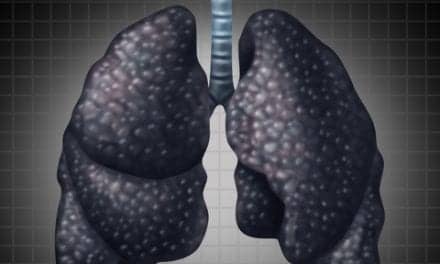An enzyme can start a chain of events that leads to cells involved in tissue scarring reversing their fibrosis-generating activity, British and American researchers have discovered.
The study dealt with the enzyme’s effect on myofibroblasts — cells involved in wound healing and inflammatory response. The discovery could lead to new therapies for the lung scarring disease pulmonary fibrosis and other fibrotic disorders, researchers said. The study, “Nuclear hyaluronidase 2 drives alternative splicing of CD44 pre-mRNA to determine profibrotic or antifibrotic cell phenotype,” appeared in the journal Science Signaling.
Fibrosis is the excessive growth, hardening, or scarring of connective tissue due to inflammation. It can cause permanent organ damage and chronic diseases such as pulmonary and cardiac fibrosis, asthma, atherosclerosis, cirrhosis, and scleroderma.










